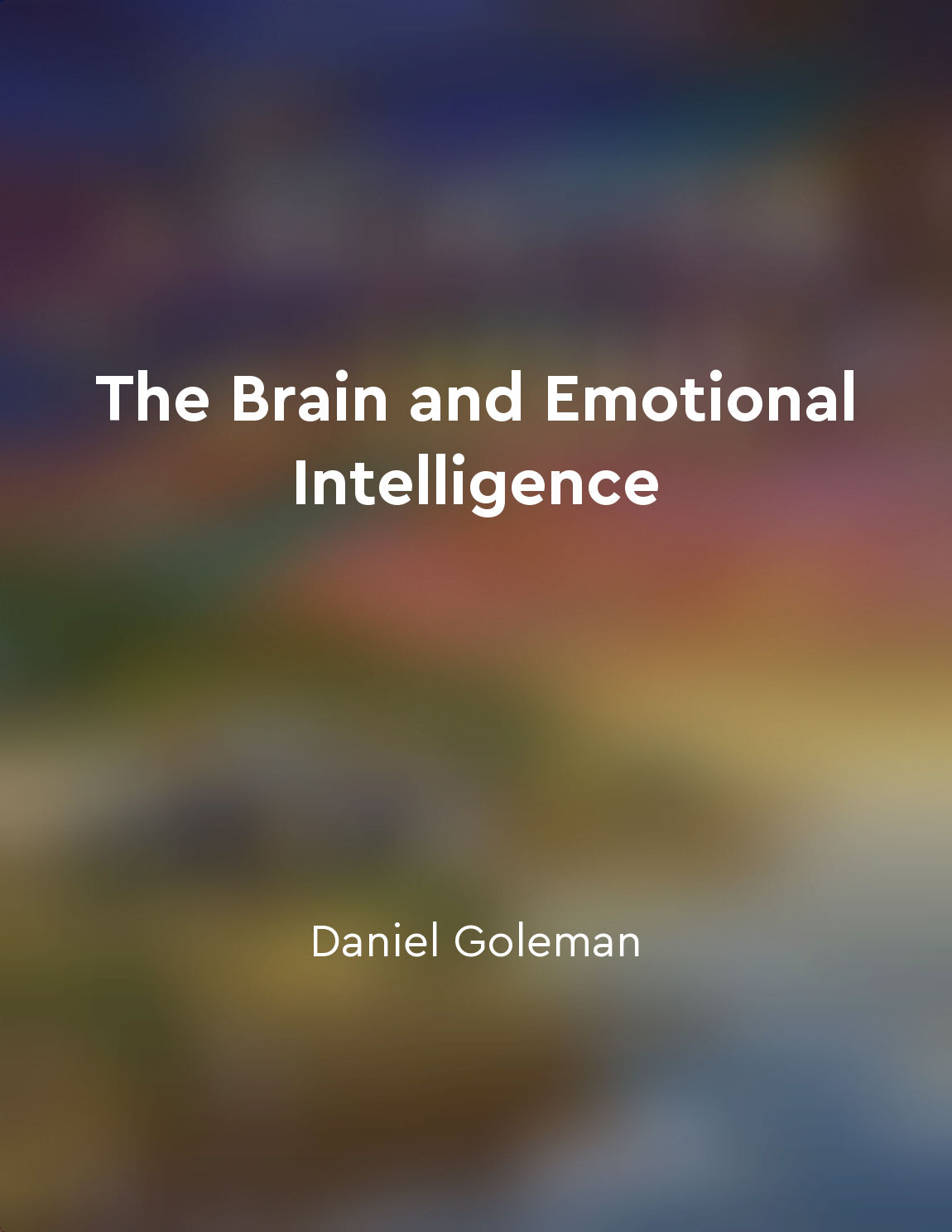The brain is the center of cognitive functions from "summary" of Human Biology by Cecie Starr,Beverly McMillan
The brain, a complex organ located within the skull, plays a crucial role in controlling various cognitive functions in the human body. These functions include perception, attention, memory, language, problem-solving, and decision-making. The brain is essentially the command center of the body, responsible for interpreting and responding to the stimuli received from the environment. The brain is made up of billions of neurons, which are specialized cells that transmit information through electrical and chemical signals. These neurons form intricate networks that allow different parts of the brain to communicate and work together to carry out cognitive processes. The brain is divided into different regions, each of which is responsible for specific functions. For example, the frontal lobe is involved in decision-making and problem-solving, while the temporal lobe is crucial for processing auditory information. Cognitive functions are carried out through a series of complex interactions between different regions of the brain. For instance, when we perceive something, such as a sound or an image, the sensory information is processed in the sensory regions of the brain before being sent to other areas for further interpretation. Similarly, when we remember something, such as a past event, the brain retrieves the memory from storage and reconstructs it through a series of neural connections. Damage or dysfunction in certain areas of the brain can lead to deficits in cognitive functions. For example, damage to the hippocampus, a region crucial for memory formation, can result in amnesia. Similarly, damage to the frontal lobe can lead to impairments in decision-making and emotional regulation. Understanding the role of the brain in cognitive functions is essential for diagnosing and treating neurological disorders that affect cognition.- The brain serves as the central hub for cognitive functions in the human body, orchestrating a symphony of neural activity to enable perception, memory, language, problem-solving, and decision-making. By studying the brain and its intricate workings, scientists and healthcare professionals can gain valuable insights into how cognitive processes are carried out and how they can be influenced by various factors.
Similar Posts
Wellbeing is a holistic balance of mind, body, and spirit
The cultivation of well-being involves a comprehensive approach that considers the interconnectedness of mind, body, and spirit...

Cultivating a sense of purpose and meaning in life
Finding a sense of purpose and meaning in life is like searching for a needle in a haystack. It can be overwhelming and exhaust...

Building strong relationships requires empathy and social skills
To build strong relationships, we must first be able to understand and connect with others on a deeper level. This requires the...
Have a definite purpose
Having a definite purpose is essential for achieving success in any endeavor. It gives you a clear direction to follow and help...

Multitasking can weaken cognitive abilities
In today's fast-paced world, many people pride themselves on their ability to multitask. They juggle multiple tasks at once, be...
Breathing exercises can help regulate the nervous system
Breathing exercises have a profound impact on our nervous system. By simply paying attention to our breath, we can start to reg...
Experience shapes brain connections
Our brains are incredibly complex organs that are constantly changing and adapting based on our experiences. Every time we lear...
Adapt lessons based on individual differences
Every brain is wired differently. This means that individuals have unique strengths, weaknesses, preferences, and learning styl...
Cognitive control impacts our decisionmaking
Cognitive control plays a crucial role in the decisions we make on a daily basis. It helps us weigh options, consider consequen...
Abnormal psychology examines mental health disorders
Abnormal psychology is a branch of psychology that focuses on the study of mental health disorders. This field explores the cau...


